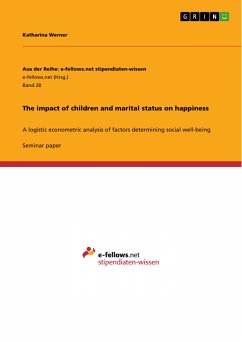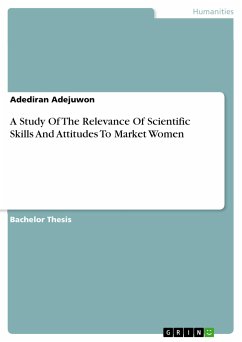Seminar paper from the year 2011 in the subject Sociology - Relationships and Family, grade: 1,0, University of Cincinnati (College of Business), course: Binary Choice Models, language: English, abstract: - Determining factors influencing happiness and well-being becomes increasingly important as politics solely based on the maximization of income/GDP miss the goal of increasing well-being. - This study utilizes data from the 2008 wave of the General Social Survey - a survey comprised of demographic, behavioral, and attitudinal questions – to determine factors that influence the probability of being happy. - As expected, positive general factors are marriage, a high education and the per capita family income. However, only marriage has a high statistical significance. - Negative determinants are unemployment, the number of hours worked per week, a decrease in the family income and a perceived low relative income (compared to others). - Being a parent, i.e. having at least one child has a negative effect. However, happiness is increasing with a rising number of children. It is important to note that the effects of having children are very different among different groups of people: Children have a strong positive effect on married individuals and a low effect on divorced/separated and widowed ones. Being at least 21 years old when the first child is born increases the likelihood that children have a positive impact on happiness. Surprisingly, the effect of children is positive if the children do not live with their parents or if the parents work a lot. - Social comparison and adaption effects seem to play an important role.









